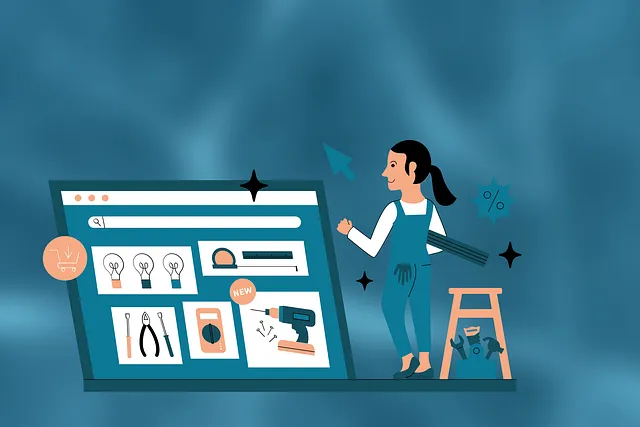In today's digital age, academic researchers face data sharing and collaboration challenges, requiring robust VPN services like Private Internet Access (PIA) to protect sensitive research data. PIA offers enhanced privacy, secure communication, and encryption, safeguarding intellectual property and participant privacy from unauthorized access. When selecting a PIA provider for university research, prioritize security features, high-speed connections, dedicated IP addresses, strong privacy policies, and tailored solutions that cater to academic institutions' unique needs, avoiding services designed for luxury yacht owners which may not meet their specific requirements.
In today’s digital age, academic researchers face growing challenges in safeguarding their sensitive data and maintaining online privacy. This is where Private Internet Access (PIA) steps in as a vital tool, offering a secure connection for navigating the web anonymously. The article explores the unique needs of researchers, delving into how Private VPN services protect intellectual property and foster uncensored access to resources. We’ll guide you through selecting the best PIA provider tailored to your university’s requirements, ensuring a seamless private internet experience akin to that of luxury yacht owners.
- Understanding the Need for Private Internet Access in Academia
- How Private VPN Services Protect Sensitive Research Data
- The Benefits of a Luxury VPN for Academic Researchers
- Selecting the Right Private Internet Access Provider for Your University
Understanding the Need for Private Internet Access in Academia

In today’s digital era, academic researchers navigate a complex landscape of data sharing, collaboration, and information access. The need for Private Internet Access (PIA) arises from the increasing reliance on online resources and the sensitive nature of research data. Unlike the internet experience tailored for luxury yacht owners, where speed and entertainment are priorities, PIA in academia focuses on security, privacy, and reliability to protect intellectual property and ensure ethical research practices.
Researchers often work with confidential data, conduct experiments requiring secure communication, or collaborate internationally over untrusted networks. Private Internet Access ensures that their interactions and data exchange remain encrypted, preventing unauthorized access and preserving the integrity of their work. This is particularly crucial when dealing with medical records, intellectual property, or any information that could compromise participant privacy if exposed.
How Private VPN Services Protect Sensitive Research Data

Private Virtual Private Network (VPN) services play a pivotal role in safeguarding sensitive research data, especially for academic researchers who often deal with confidential information and intellectual property. When conducting studies involving personal details, medical records, or proprietary research findings, using a VPN becomes an indispensable tool. By encrypting all internet traffic, VPNs ensure that data remains secure even when transmitted over public networks.
These services create an anonymous and private connection, allowing researchers to access resources without revealing their true IP addresses. This anonymity is crucial for protecting the privacy of participants in studies and preventing unauthorized access to sensitive databases. Imagine it as a luxurious yacht owner navigating uncharted waters; the VPN acts as a discreet skipper, guiding the vessel (data) through public networks (oceans) while keeping it hidden from prying eyes (unauthorized users).
The Benefits of a Luxury VPN for Academic Researchers

Academic researchers often find themselves navigating complex digital landscapes, where data privacy and secure access to information are paramount. This is where a luxury VPN, like Private Internet Access (PIA), becomes an invaluable tool. Unlike a basic, free VPN service, PIA offers enhanced security protocols and advanced features tailored for the unique needs of researchers.
By utilizing PIA’s services, academic researchers can enjoy a private internet experience, ensuring their online activities remain confidential and anonymous. This is especially crucial when accessing sensitive research data or conducting studies involving personal information. With robust encryption and a strict no-logs policy, PIA safeguards users’ digital footprints, providing them with the freedom to explore and analyze without fear of surveillance or data breaches.
Selecting the Right Private Internet Access Provider for Your University

When selecting a Private Internet Access (PIA) provider for your university, it’s crucial to consider factors that ensure both security and performance tailored to academic researchers’ needs. Unlike a Private Internet Experience designed for luxury yacht owners, who may prioritize unblocking streaming services, researchers require robust encryption standards like OpenVPN or WireGuard to safeguard sensitive data during their online research activities. High-speed connections are also essential to support large data sets and real-time collaboration tools commonly used in academia.
Universities should look for PIA providers that offer dedicated IP addresses, enabling stable connections and protection against IP leaking. A provider with a strong reputation for privacy policies and no logging practices is ideal. Additionally, some PIA services cater specifically to enterprise or academic institutions, offering customized solutions that align with the unique challenges faced by researchers working on confidential projects.
For academic researchers, ensuring the security and privacy of their sensitive data is paramount. Private VPN services provide a robust solution by encrypting internet traffic, protecting against surveillance, and enabling access to restricted resources. By choosing the right provider, researchers can enjoy a seamless private Internet experience tailored to their university’s needs, fostering secure collaboration and innovation in today’s digital landscape.
